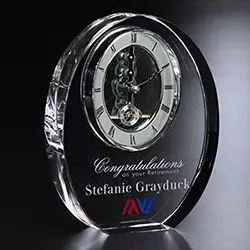Boosting Employee Engagement and Satisfaction
Employee engagement and satisfaction are pivotal to business success, and non-cash rewards are emerging as powerful tools to enhance motivation and loyalty. Unlike traditional cash bonuses, which are often viewed as entitlements, non-cash rewards offer a more personal and memorable way to recognize employee achievements. This blog explores the emotional impact of non-cash rewards and provides insights on how to effectively curate a diverse rewards portfolio that resonates with your workforce.

Understanding Non-Cash Rewards
Non-cash rewards can range from physical items like electronics and lifestyle products to experiences such as travel or exclusive events. These rewards are perceived not merely as gifts but as symbols of appreciation, highlighting an employee’s value to the organization. By offering something tangible or experiential, companies can make a more significant impact on an employee’s feeling of being valued and appreciated.
The Emotional Impact of Non-Cash Rewards
The emotional resonance of non-cash rewards lies in their ability to create lasting memories. For instance, an employee who receives a high-quality, well-known brand piece of merchandise as a reward for their service is likely to remember the achievement and the recognition every time they use the product. Unlike cash, which is typically absorbed into daily expenses, non-cash rewards stand out as markers of success and appreciation, enhancing employee satisfaction and emotional connection to the company.
Curating a Diverse Rewards Portfolio
To maximize the impact of non-cash rewards, it’s crucial to tailor your offerings to the preferences and interests of your workforce. Here are some tips for curating a diverse rewards portfolio:
- Personalization: Offer rewards that can be personalized or chosen based on individual preferences. This shows thoughtfulness and consideration for the personal tastes of your employees.
- Eco-Friendly Options: Appeal to environmentally conscious employees by including eco-friendly and socially responsible items, such as products made from recycled materials or that support fair trade practices.
- Technology and Lifestyle Products: These remain highly desirable and can range from the latest gadgets to home and kitchen upgrades.
- Experiential Rewards: Offer experiences that employees might not purchase for themselves, such as a cooking class with a renowned chef or tickets to a sought-after event, which can be especially memorable and valued.
Case Studies and Success Stories
 To illustrate the effectiveness of non-cash rewards, consider the example of a tech company that implemented a rewards program featuring custom-designed electronics for top performers. The program led to a 40% increase in employee performance metrics and a significant boost in staff retention rates. Another case is a healthcare provider that offered travel rewards for teams exceeding their targets, resulting in heightened team cooperation and a 50% reduction in annual turnover.
To illustrate the effectiveness of non-cash rewards, consider the example of a tech company that implemented a rewards program featuring custom-designed electronics for top performers. The program led to a 40% increase in employee performance metrics and a significant boost in staff retention rates. Another case is a healthcare provider that offered travel rewards for teams exceeding their targets, resulting in heightened team cooperation and a 50% reduction in annual turnover.
Non-cash rewards are more than just alternatives to cash bonuses; they are a strategic investment in your workforce. By recognizing the unique contributions of your employees with rewards that carry emotional significance, you not only enhance their job satisfaction but also build a more committed and motivated team.
Implementing a thoughtfully designed non-cash reward program can transform your organizational culture and lead to higher levels of employee engagement and performance. As the workplace continues to evolve, ensuring that your rewards program adapts to meet the changing needs and desires of your staff will be key to maintaining a happy, productive workplace.
